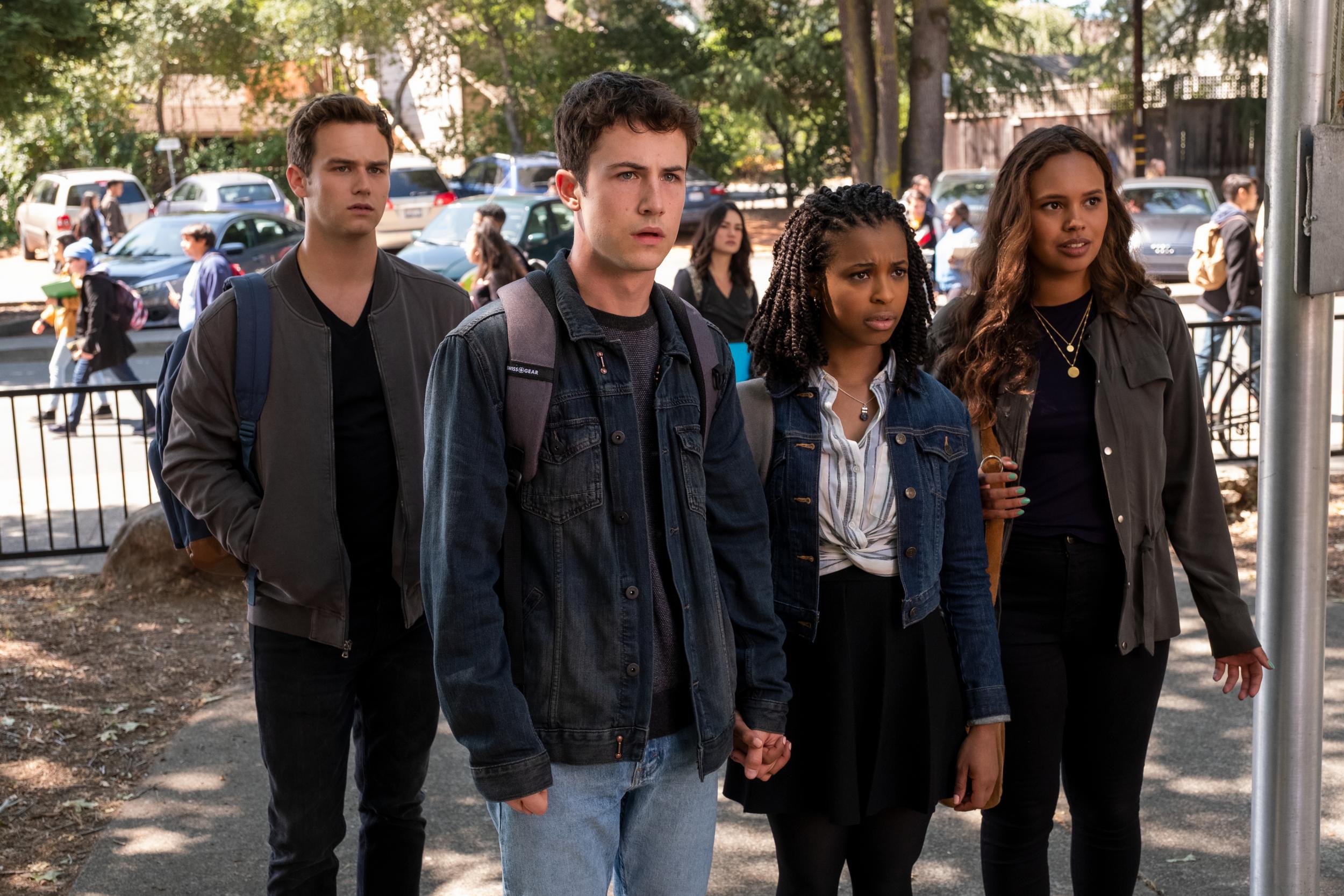From 13 Reasons Why to Killing Eve – Why TV adaptations should stop going beyond the book
As ‘13 Reasons Why’ returns to Netflix for an unwanted fourth season, Miriam Balanescu looks at the regrettable rise in television venturing beyond its source material

No sooner had Normal People broken BBC Three’s streaming record than people were desperately clamouring for a second series. Never mind that the show, based on Sally Rooney’s ubiquitous novel, had run out of source material. Director Lenny Abrahamson told the Radio Times that “seeing where [Marianne and Connell] are in 10 years’ time” would be “good”. Producer Ed Guiney said to The Hollywood Reporter that more episodes could air “in the future”.
It would not be the first time that a series has jumped beyond the limit of its literary original’s pages: Sherlock, The Walking Dead, Big Little Lies and House of Cards did so too. And 13 Reasons Why, which has returned to Netflix for a fourth and final season, is one of the more egregious examples. Based on the novel by Jay Asher, the controversial show’s first season faced criticism for a graphic suicide scene. Two years later, after a study suggested a possible link between an upturn in teenage suicide and the popularity of the show, the scene was removed.
And yet, it has continued for three more seasons beyond the book, each more gratuitously violent than the last. While the show’s emphasis on consent is commendable, its checklist of brutality, including rape and a near mass shooting, is treated with insensitivity and sensationalism – designed for no other reason than to keep viewers hooked.
13 Reasons Why is not alone in setting up a precedent of violence which is topped with each season. The second season of The Handmaid’s Tale, which refused to be curtailed by Margaret Atwood’s 1985 feminist dystopian novel, has been described as “needless torture porn” by journalist Rebecca Reid. As critic Tod van der Werff points out: “You can see the wheels turning where they need to keep it going.” The harrowing barbarity of Gilead, as director Mike Barker notes, is directly influenced by historical and current events. But the amped-up misery of the show’s second season fits a disturbing trend towards glorifying violence against women for the sake of viewing figures.
Going beyond the book also brings a risk to narrative structure. Take Killing Eve. Adapted from Luke Jennings’s Codename Villanelle, the show has never stayed strictly true to the book, changing its anti-hero’s backstory and inventing new characters (including Carolyn, Kenny and Bill). Its departure from the book, under the instruction of writer Phoebe Waller-Bridge, initially made it the most eclectic female-led thriller on television. But midway through its third season, it hasn’t kept up the level of intrigue, freshness and humour with which it began. The plot wanders without clear direction, exploring too many possibilities and situations and leading many viewers to express disappointment.
I Am Not Okay With This, from the comic by Charles Forsman, also amends its ending to make room for a second season. The Netflix series, about an angsty teenager with telekinetic powers, adds an extra subplot involving an elusive shadowy man to steer us into the next season, making the comic book and show two very separate entities. Though perhaps this decision was for the best: in Forsman’s comic, his protagonist Syd dies by suicide at the end. By altering the graphic ending, for which Forsman was criticised, the series avoids making the same mistake as 13 Reasons Why.
According to the BBC, a show’s second season is most commonly nominated for an Emmy Award for outstanding drama series, but for subsequent seasons the likelihood declines. Countless literary adaptations, from The Walking Dead to Game of Thrones, have started off with rave reviews only to plummet towards critical rebuke. Game of Thrones was close to bucking the Emmy trend, but after it overtook its author George RR Martin (still hurriedly working on his sixth book in the series), things went downhill rapidly. So why do the creators of these adaptations hurtle on past their best-before date?
Maybe hit shows are unwilling to let go of their audience. In serialisation, they are unlikely to lose too many committed viewers, even if the standard drops. Perhaps over-serialisation also shows an aversion to taking risks: when producers and platforms know a series sells, it’s easier to stretch it to breaking point than create something new. When it comes to adaptations of books, especially bestselling novels such as Normal People and Celeste Ng’s Little Fires Everywhere (now on Amazon Prime Video), the televised version already has an audience lined up.
Programmes rarely lives up to the standard of their early seasons. Television can be a brilliant format for delving into character and situation, but when novels meet television, the commercial instinct is to hold onto those characters, often exhausting their potential.
Rooney’s book Normal People is so poignant precisely because it is a brief snapshot of two young lives. This would inevitably be lost in serialisation. Sometimes, as Little Fires Everywhere showrunner Liz Tegalaar put it, it’s better to end a series “where it ends”.
Subscribe to Independent Premium to bookmark this article
Want to bookmark your favourite articles and stories to read or reference later? Start your Independent Premium subscription today.

Join our commenting forum
Join thought-provoking conversations, follow other Independent readers and see their replies